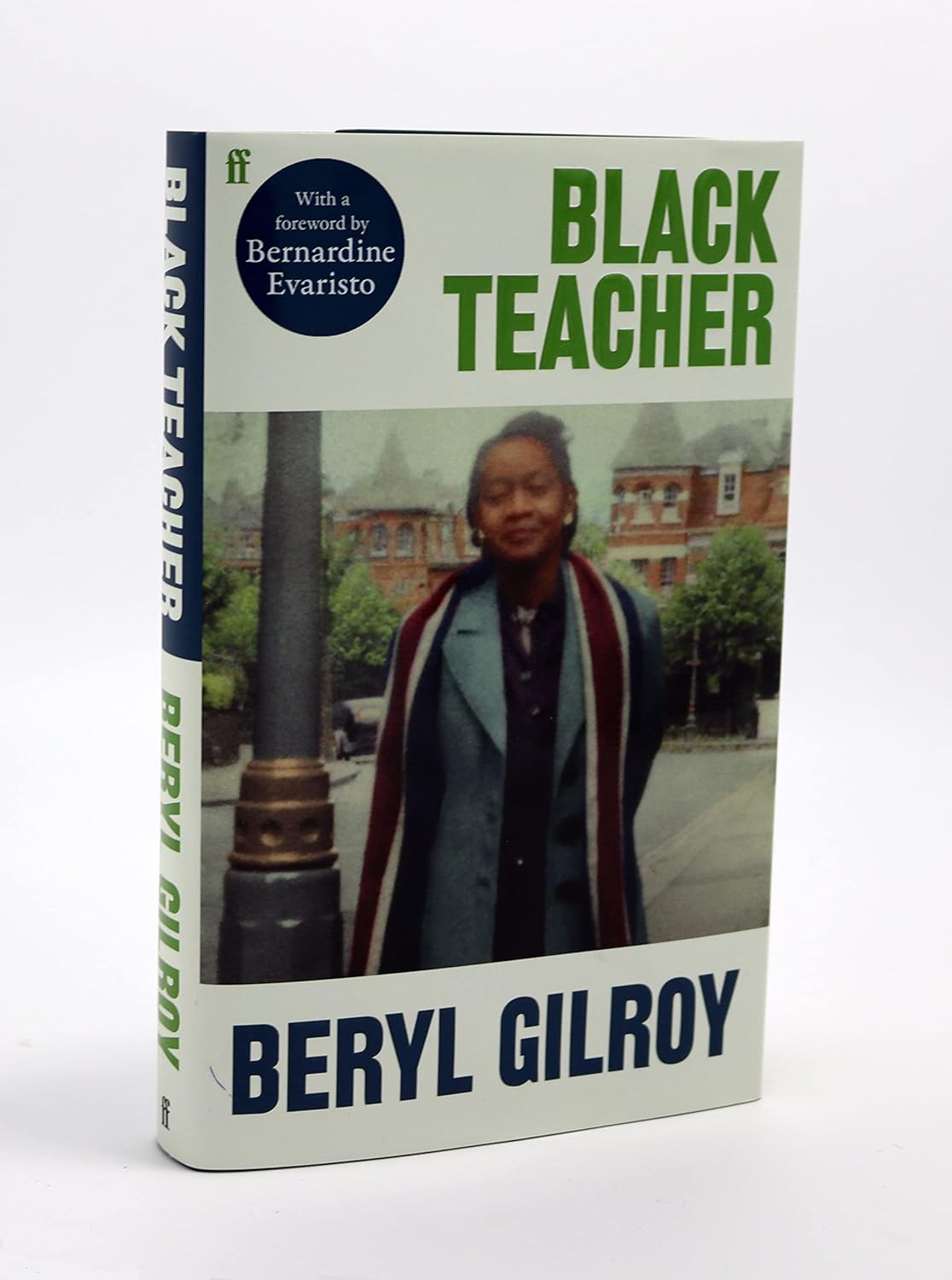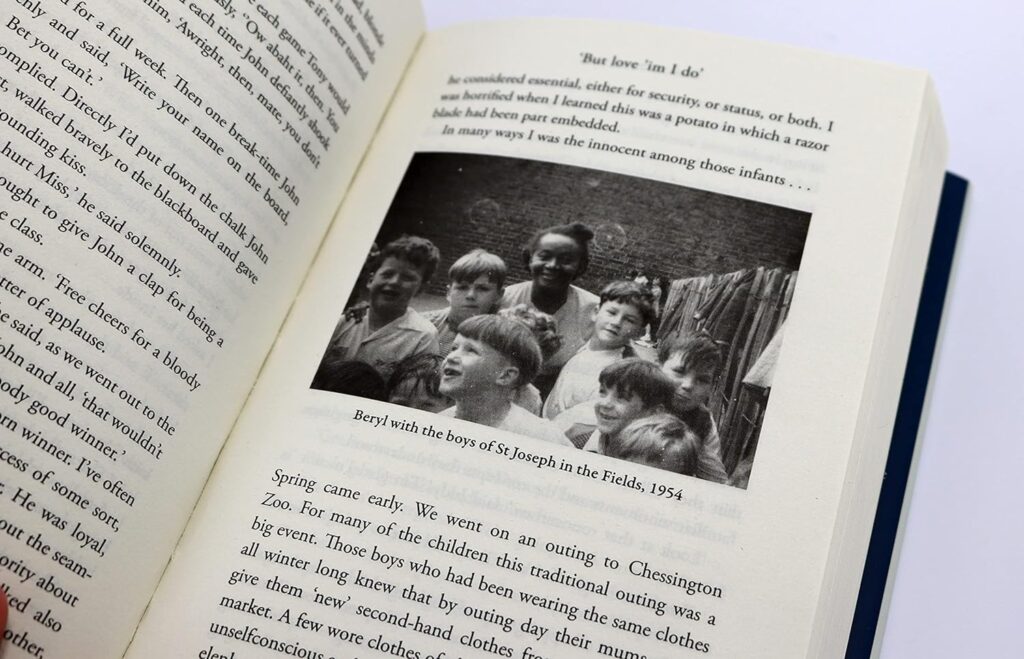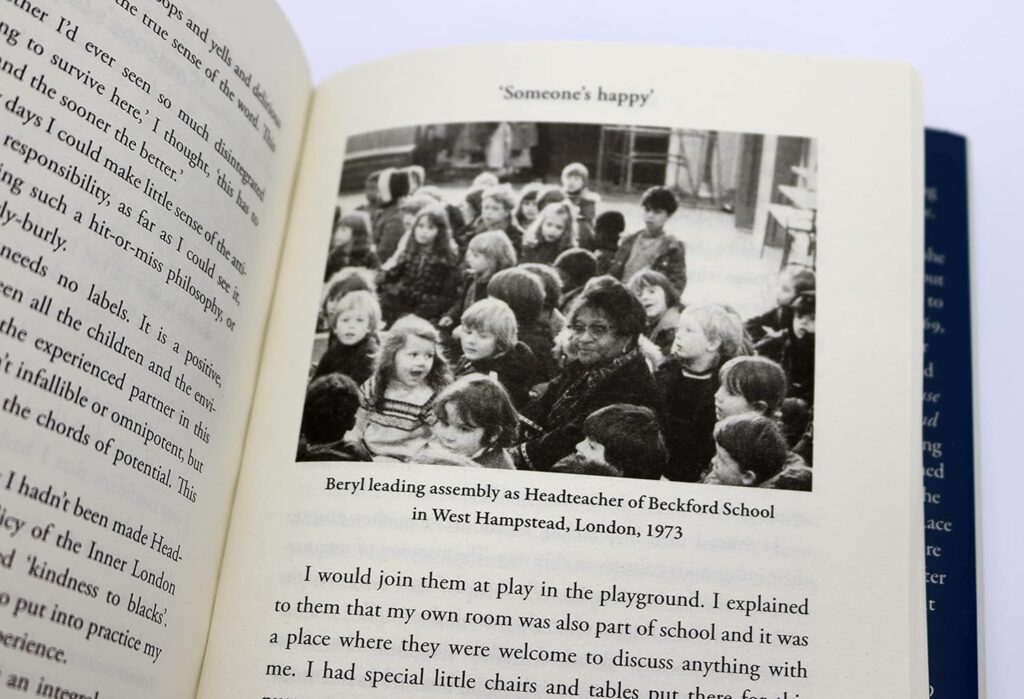Twenty-three years after Gilroy’s passing, her legacy as a Black migrant woman educator in the UK lives on.
by Laura Rodríguez-Davis
It is difficult to overstate the value of passionate educators who are committed to their students and enter the classroom with not only knowledge but wisdom and understanding.
Moreso are the teachers who overcome their own obstacles to even set foot in a classroom and rise to the challenge of educating children and youth whilst systemic discrimination rigidly preserves the status quo.
The spirit of such an educator is artfully captured in Beryl Gilroy’s memoir, Black Teacher. Originally published in 1976, the 2021 re-print features a forward from Booker Prize laureate Bernadine Evaristo, who pays homage to Gilroy by reflecting on the book’s significance and relevance many years after its initial publication.

Born in 1924 in British Guiana (now Guyana), Gilroy trained as a teacher in her native country before migrating to London in 1952. Part of the Windrush generation in post-war England, she found herself blocked from her chosen profession by racism and xenophobia and forced to take jobs beneath her qualifications, a problem even contemporary migrants understand far too well.
With humour and honesty, Gilroy takes the reader through her early years in London as a newcomer attempting to build a life and career at a time when employers were much more explicit in their discrimination. She narrates her interactions with her white co-workers, usually female, who appear to tolerate Gilroy’s melanin until they gain a scrap of social mobility. Gilroy considers such dynamics, offering poignant reflections on sexism, female solidarity, internalised racism, and identity.
When the author is finally able to secure a position as a teacher, she encounters children who serve as the mouthpieces for their parents’ racism with typical childlike candour. Undeterred, Gilroy, with grace and patience, challenges their prejudiced perceptions, often winning her students’ affection and respect. Indeed, she navigates a myriad of discriminatory experiences during her career with a rare undaunted dignity, often responding to caustic remarks with a wit that leaves readers smirking with satisfied relish. In the words of Evaristo:
“She is a powerfully rooted person, someone whose moral values, sense of humour, innate refinement and dignity rise above the vulgarity of the everyday discrimination hurled at her by people who see only colour and not character.”
Gilroy offers readers a glimpse into her world by maintaining the colloquial vernacular according to the culture of each individual, creating a cast of characters that invite the audience into a specific setting. Yet, despite the obvious indicators of time and place, Gilroy’s descriptions of her treatment and experience as a Black migrant woman will be immediately familiar to migrant women of colour in the present day.
From the pressure to resist racial stereotypes to witnessing less qualified white counterparts receive promotion to discerning between pointed bigotry and genuine curiosity, the author wrestles with these dynamics that seem almost transcendent in their staying power across time and generation.

Nevertheless, there is something irresistible about Gilroy’s long-suffering refusal to be cowed into retiring acquiescence. She is self-possessed, fully understanding who she is and what value she holds. Gilroy’s stubborn ambition is fully anchored in reality. With a sober understanding of what it means to be a Black migrant woman in Britain, she persists in developing her career as an educator.
She even steps back when motherhood calls her away from the classroom. While this may initially seem like an un-feminist death sentence to her career, Gilroy does not trouble herself with such notions. Instead, her decision appears to be borne of a faith in her own discernment and self-assured worth of her personhood beyond an occupation.
Indeed, Gilroy’s career achieves great heights as a leader in education and the author of multiple award-winning books. She also obtains a Master’s and PhD alongside other noteworthy accolades testifying to her contributions as a pioneer and trailblazer in her field. For all her laurels, it is clear throughout the memoir that the heart of Gilory’s passion and motivation lies with the children she impacted.
Without saccharine sentimentality, the care and affection with which she regards her students spring off the pages. In turn, the students’ wonder and candid curiosity seem to serve as a preserving life force on the most challenging days.

Twenty-three years after Gilroy’s passing, her legacy as a Black migrant woman educator in the UK lives on. This re-print of Black Teacher for a contemporary audience is a gift to those who also tread hostile immigration systems and institutional discrimination.
They will find themselves reflected in the pages of this tome and inspired by Gilroy’s sensible perseverance and ingenuity.
Today, as we reflect on Beryl Gilroy’s passing, reading Black Teacher is a fitting tribute to Gilroy and generations past of migrant women who have left an indelible mark on history and carved a way forward into the future.
Black Teacher Genre: Nonfiction/Memoir/History Book Publisher: Faber & Faber Available to Purchase Here


Laura Rodríguez-Davis is Migrant Women Press Literature Editor. A Puerto Rican originally from Florida, she currently lives in Belfast, Northern Ireland, where she recently obtained an M.Phil in Conflict Resolution and Reconciliation. When she is not writing, Laura can be found acting or spending time with her husband and dog.